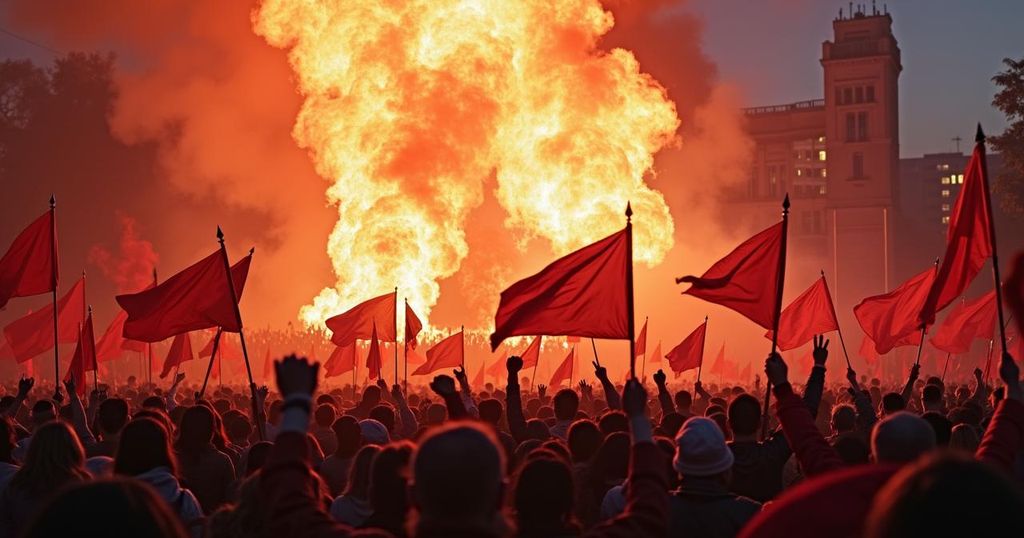North Macedonia Commemorates October 11: The Day of the People’s Uprising

North Macedonia observes October 11 as the Day of the People’s Uprising, honoring the 1941 rebellion against fascism. President Gordana Siljanovska Davkova will speak at a commemorative event, while floral tributes will be laid by governmental delegations. The state prize for 2024 will also be awarded, recognizing achievements in culture, art, and science. This day is a non-working holiday for citizens.
North Macedonia commemorates “October 11,” recognized as the Day of the People’s Uprising, which marks the 1941 armed rebellion against fascism. On this significant occasion, President Gordana Siljanovska Davkova will address attendees during a ceremony held at the Museum of the Macedonian War for Independence. Additionally, delegations from both the Assembly and Government are scheduled to lay floral tributes in Skopje, Prilep, and Kumanovo. The celebration will also include the presentation of the “October 11” state prize for 2024, where notable individuals in culture, art, and science are to be honored. Specifically, Lifetime Achievement Awards will be given to Lupčo Karov, Vladimir Temkov, and Jovica Mihajllovski for their contributions to the arts, while prof. dr. Marko Kitevski will receive recognition in the field of science for his research on Macedonian folklore. In observation of this holiday, October 11 is designated as a non-working day for all citizens.
The Day of the People’s Uprising is a significant national holiday in North Macedonia, commemorating the pivotal role of the populace in resisting fascism during World War II. The uprising marked a crucial point in the struggle for independence and the establishment of national identity. The observances of this day underscore the valor of the citizens who participated in this historical event, and it fosters a sense of national pride and unity.
In conclusion, October 11 serves as a poignant reminder of the bravery exhibited by the people of North Macedonia against fascist forces in 1941. The commemorative events led by President Gordana Siljanovska Davkova and other dignitaries reflect the importance of this day in fostering national pride, honoring significant cultural contributions, and recognizing the sacrifices made for freedom. As a non-working holiday, it provides an opportunity for citizens to reflect on their history and the values of resilience and unity that it represents.
Original Source: telegrafi.com








